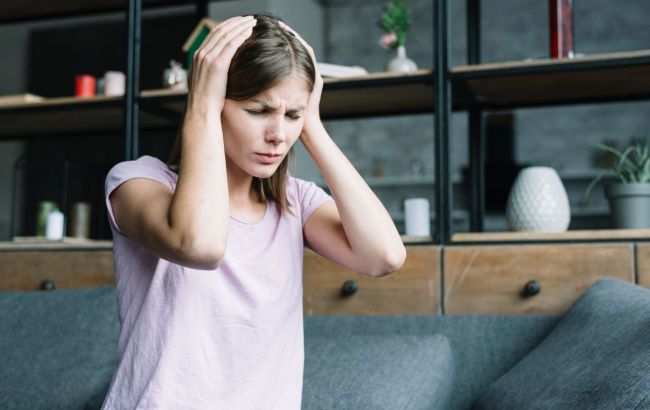Migraines in women and men: 10 unobvious triggering factors
 Illustrative photo (Freepik)
Illustrative photo (Freepik)
Some individuals are more prone to migraines, partly due to genetics. However, there are several environmental factors that can trigger this condition. If you often suffer from debilitating headaches, it's worth eliminating the below described triggers, according to WebMD.
Why migraines occur
Doctors aren't entirely sure what causes migraines, but they believe that an imbalance in certain brain chemicals may play a role.
The trigeminal nerve in the head is responsible for connecting with the eyes and mouth, as well as facial sensitivity. This nerve can release neurotransmitter chemicals that enter the brain and cause pain.
Factors that increase risk of migraines
- Genetics. If someone in your family suffers from migraines, you are likely to have them as well.
- Age. Migraines can occur at any time in your life, but they typically first appear during teenage years. Headaches usually peak at age 30 and become less severe afterward.
- Gender. Women are three times more likely to suffer from migraines than men.
Migraine triggers
Hormonal changes. Fluctuations in estrogen hormone levels can trigger migraines in women. Birth control pills or hormone replacement therapy can provoke or exacerbate headaches. However, some women experience fewer migraines when taking these medications.
Stress. This is one of the most common migraine triggers. During times of stress, the brain releases chemicals that prompt the "fight or flight" response. Anxiety, worry, and fear can create even more tension and worsen migraines.
Certain foods. Salty, processed foods and aged cheeses (like blue cheese) are common triggers. Artificial sweetener aspartame and flavor enhancer monosodium glutamate (MSG) can also induce migraines.
Skipping meals. Skipping meals can cause a drop in blood sugar levels, triggering headaches.
Alcohol and caffeine. Alcoholic beverages and high-caffeine drinks can induce migraines.
Sensory overload. Bright lights, loud noises, and strong odors can trigger headaches in some people.
Changes in sleep patterns. Lack of sleep can lead to migraines. Jet lag from travel can also be a factor.
Physical exertion. Intense exercise, heavy lifting, or even sex can trigger migraines. It's important not to avoid activity, but remember to pace yourself.
Weather changes. People often react to changes in barometric pressure, affecting how they feel.
Overuse of medication. If you have migraines and take medication for them more than 10 days a month, you may experience what's known as rebound headaches, resulting from excessive medication use.
Experts emphasize that it's not possible to completely prevent migraines, but regular and quality sleep, healthy eating, physical activity, and stress management can help prevent them from bothering you.
This material is for informational purposes only and should not be used for medical diagnosis or self-treatment. Our goal is to provide readers with accurate information about symptoms, causes, and methods of detecting diseases. RBС-Ukraine is not responsible for any diagnoses that readers may make based on materials from the resource. We do not recommend self-treatment and advise consulting a doctor in case of any health concerns.

